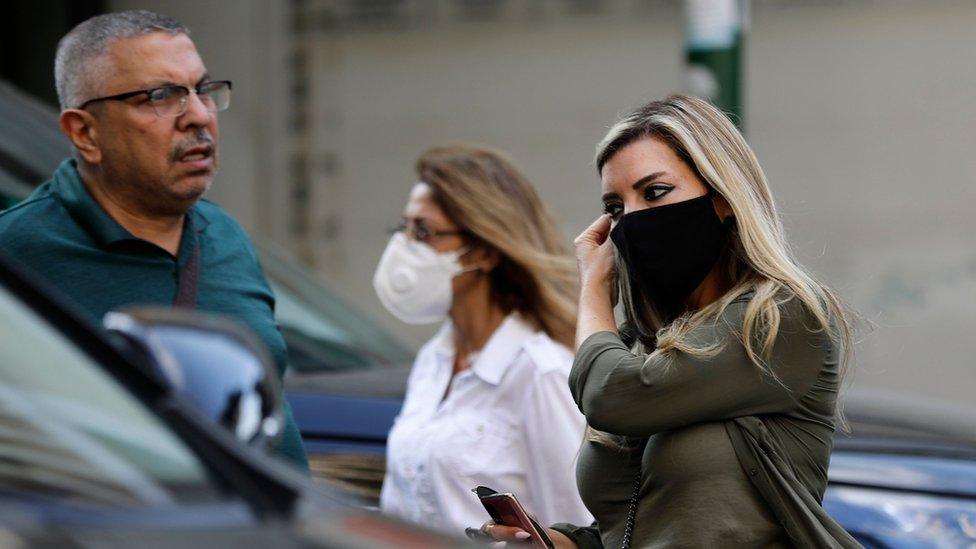Coronavirus: Lebanon to impose new lockdown despite economic cost
- Published

Local lockdowns and night-time curfews have failed to reduce the number of infections
Lebanon's government will impose a two-week lockdown from Saturday to stem a resurgence of Covid-19, even though it will exacerbate a deep economic crisis.
Caretaker Prime Minister Hassan Diab said a "stage of extreme danger" had been reached, with hospitals unable to admit patients in a critical condition.
Restrictions in place between March and June helped limit the initial outbreak.
But the number of new infections soared after the devastating explosion in the capital Beirut in August.
The health ministry has reported since the start of the pandemic.
In the past month 42,000 people have been infected and 277 have died, despite local lockdowns in dozens of towns and villages, night-time curfews across the country, and the closure of all bars and nightclubs.
, Mr Diab explained that the current restrictions were not working and that he had no other choice but to impose a full nationwide lockdown because of the risk of Lebanon's fragile health system being overwhelmed.
Hassan Diab said he wanted to avoid Lebanon's fragile health system being overwhelmed
"Today, we have reached the red line in the number of infections, and we have reached the stage of extreme danger in light of the inability of government and private hospitals to receive critical cases," he said.
"We are afraid that we will reach a stage where people die in the streets in the absence of places in hospitals to treat the injured, or that there is a trade-off between one person and another."
Mr Diab said the lockdown would start this weekend and continue until 29 November.
The health sector and vital industries would be exempted, he added, without providing details.
He also ruled out closing the country's only international airport, which he did during Lebanon's first lockdown earlier this year.
Specially trained dogs in Lebanon are learning to detect coronavirus
The outgoing prime minister said he "knew very well the extent of the economic damage inflicted by this closure" and that he heard the "economists and traders screaming against the decision".
But he added: "I also clearly hear the voices of doctors, hospitals and the entire health sector, sounding the alarm and calling for the country to be closed for a whole month."
Mr Diab resigned following the explosion in Beirut, which was caused by the detonation of 2,750 tonnes of ammonium nitrate stored unsafely in a port warehouse and was widely blamed on government negligence.
The massive blast killed almost 200 people, injured 6,000 others, and caused as much as $4.6bn (拢3.6bn) of physical damage and $3.5bn of economic damage.
Starting with the epicentre, we follow how the 4 August blast ripped through the city, bringing life to a halt
Before the disaster Lebanon was already reeling from an economic crisis that had caused its currency to collapse, driven up unemployment and plunged many into poverty.
Western powers have demanded that the new government implement urgent reforms and tackle corruption to unlock billions of dollars of aid.
Saad Hariri was named prime minister-designate last month, but he has not yet been able to assemble a cabinet.